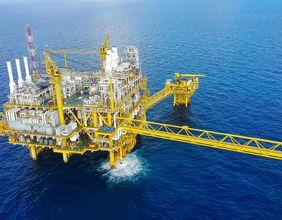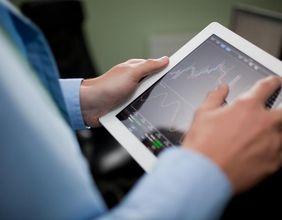BEIJING, May 6, 2024 /PRNewswire/ -- Editor's Note:
Chinese President Xi Jinping left Beijing on Sunday morning for state visits to France, Serbia and Hungary at the invitation of President Emmanuel Macron of the Republic of France, President Aleksandar Vucic of the Republic of Serbia, and President Tamás Sulyok and Prime Minister Viktor Orbán of Hungary. Ahead of his visit to France, Global Times reporters Chen Qingqing and Bai Yunyi (GT) interviewed former French prime minister Jean-Pierre Raffarin (Raffarin), talking about the significance of the state visit for China-France relations, reviewing the future development of bilateral ties, and discussing the role of China-France relations in China-EU relations.
GT: This year marks the 60th anniversary of diplomatic relations between China and France. Could you share some important historical moments and achievements from these 60 years of China-France relations?
Raffarin: First of all, General de Gaulle's decision to establish diplomatic relations with China in 1964 is itself historic. France's support for the Chinese authorities in their fight against the SARS pandemic in 2003 was a major act, as were the opening of the Airbus factory in North China's Tianjin and the commissioning of the first Franco-Chinese nuclear reactor in South China's Guangdong Province. I am also very struck by the beauty of the Beijing Opera House designed by French architect Paul Andreu. There have been many joint creations across numerous fields. In 60 years, I have made more than 100 trips to China; 100 opportunities for very fruitful sharing.
GT: Over the last 60 years, what have been the changes and constants in China-France relations?
Raffarin: The constant is France's desire for independence in its policy with China. The change has been the development of the European Union, which has made diplomatic work more complex. All French presidents have followed, in relation to China, Charles de Gaulle's major orientations: Respect for civilizations, frank discussions, and co-responsibility for the future.
GT: In your opinion, what is the core element that has allowed these relations to withstand tests and continue to progress?
Raffarin: The central core is the mutual cultural appetite.
Analyzing the differences in our two civilizations is particularly fruitful as demonstrated by the philosopher François Jullien.
Culture is the heart of our relationship. The joint curiosity has been intact for centuries. This is the source of the respect that allows us to live with deep differences.
GT: How do you assess the current relations between China and France? Given the challenges of globalization and changes in the international political and economic situation, in which areas can China and France strengthen cooperation?
Raffarin: France has stable relations with China unlike many other countries, including in Europe. Chinese President Xi Jinping and French President Emmanuel Macron are two leading figures who know each other very well. They have spent hours and hours in discussion together.
The priority of our future relations, in my opinion, is building peace. In the short term, it is to act together for peace in Ukraine. In the medium term, it is to build a new multilateralism capable of allowing peace and development on our common planet.
GT: In your opinion, what role do China-France relations play within the framework of China-Europe relations? How will Europe's position in Chinese foreign policy evolve?
Raffarin: France's role in Europe is very active. We defend our ideas vigorously in all European forums. Our vision for Europe's strategic independence is gaining ground.
I think that the China-France dialogue is the best way to bring about peaceful solutions.
GT: 2024 is the year of China-France culture and tourism, as well as the Olympic year for France. Could you present the plans for cultural cooperation and exchanges between China and France for this year?
Raffarin: Many public and private initiatives will mark this year. For example, the exhibition on Versailles and the Forbidden City are particularly creative. A cultural forum bringing together Chinese and French artists will take place in November in Deauville. France will be the guest of honor at the Shanghai Expo. And more than 100 initiatives are already being programmed.
Cultural exchanges are the best medium for fostering mutual understanding and reciprocal respect.
GT: What role does cultural and human exchanges play in China-France relations?
Raffarin: We will prioritize student exchanges because they are the best vectors for promoting joint projects and creating deep and authentic ties between the two countries.
GT: In the fields of emerging technologies, sustainable development, and green energy, how can China and France seek new opportunities for cooperation?
Raffarin: I think we need to work together on the theme that is very popular among young Chinese and French people, which I call "the Planetization of politics."
Only recently has the Planet become a political object. There is a shared conviction among the world's youth: We must protect the Planet to protect Humanity.
Global governance needs consensus to progress. It is around this theme that it should be possible to invent a new multilateralism that will correct the current multilateralism's impotence.
GT: Given the current uncertainty of the international commercial environment, what are the challenges and opportunities facing China-France economic cooperation? How do you view 2023's debates in Europe on "de-risking" and this year's on "over capacity" in China?
Raffarin: We must understand our differences to avoid misunderstandings. There is a real consensus in Europe that public money should be used to help Europeans, for example, buy electric vehicles. But these subsidies are not intended to assist the production of foreign industries.
Since the WTO is currently partially blocked, trade regulation should proceed through bilateral agreements. The only real way to cooperate sustainably is to balance concessions.
GT: What are your expectations regarding the visit of the Chinese top leader to France?
Raffarin: Peace in Europe. Let's remain faithful to the spirit of General de Gaulle when, 60 years ago, he decided to establish diplomatic relations with China. The differences were probably greater than now, but the central idea was that our destinies are linked and thus the path of cooperation is more fruitful than confrontation. For this, direct and frank dialogue, understanding of each other's interests and values, and respect for sovereignty are necessary.






